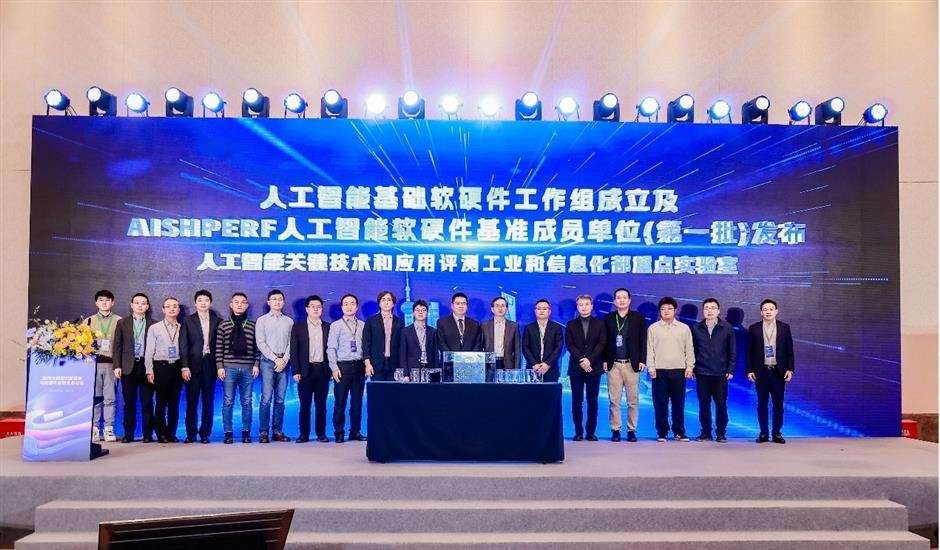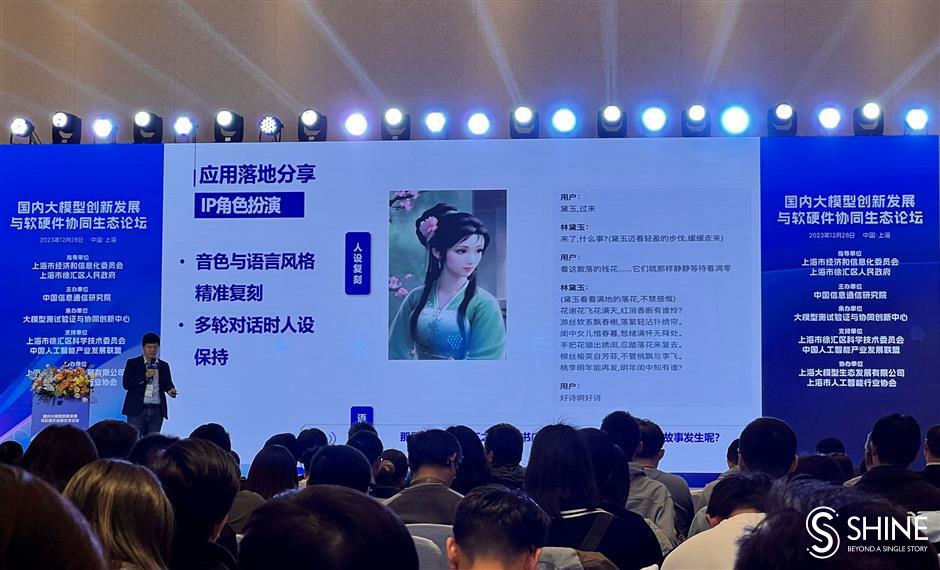AI workgroup established to drive ecosystem development

An artificial intelligence workgroup was founded in Shanghai on Thursday.
An artificial intelligence workgroup was established in Shanghai on Thursday, with the first batch of members comprising Huawei, Baidu, Alibaba and MiniMax.
The aim is to strengthen the Chinese AI ecosystem, particularly for hardware and software synergy.
China has 4,400 core AI enterprises with a combined industry output of more than 500 billion yuan (US$70.4 billion). According to the Ministry of Industry and Information Technology, the country's AI computing capabilities rank second globally after the United States.
However, the current development of China's AI industry is characterized by "a weak ecology and a lack of deep integration," which must be addressed by the combined efforts of all industry stakeholders, said Liu Bochao, a MIIT senior official, at an AI conference held in Shanghai's Xuhui District.
An AI software and hardware synergy workgroup was formed at the conference. It works on chips, software, the cloud, LLMs (large language models), and application integration.
The workgroup drafted the AISHPerf, or Performance Benchmarks of Artificial Intelligence Software and Hardware, standard with the goal of becoming a unified industry benchmark. AISHPerf began with 18 organizations, including the Shanghai AI Lab, Alibaba, Baidu and Huawei.
The industry coloration and unified standard is a key part to optimize AI industry's ecosystem in Shanghai, said Zhang Hongtao, vice director of the Shanghai Commission of Economy and Informatization. He added that AI, biomedicine and integrated circuit currently are three city-level strategic industries to promote.
A comprehensive LLM is highly complex, necessitating efforts in data preparation, training, computing power constriction, final model deployment, and inference. Huawei stated that it cannot rely solely on AI cards but must also address storage and network synergy.

MiniMax shows role-playing AI that simulates and generates character dialogues.
China requires AI models that are simple to use and have an integrated system. As a result, enterprises can concentrate on implementing apps in vertical and final applications, according to industry officials.
MiniMax, a popular AI model, is utilized in interactive entertainment, work efficiency, smart search, voice assistant, role playing, coding, and audio books. Liu Hua, vice president of Shanghai Xiyujizhi, MiniMax's creator, said more AI applications will be employed in the Internet, smart devices, enterprise service, finance, culture, and education in the future.
A single model optimization or arithmetic power augmentation is no longer sufficient to meet the demands of massive model pre-training and innovation. According to the China Academy of Information and Communications Technology, it now includes AI framework development, arithmetic clusters, and chip synergistic evolution.
















